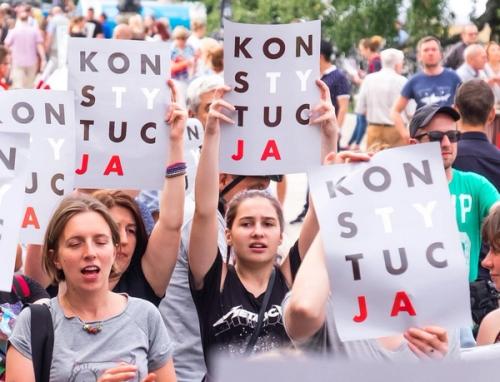
- Series editors
Gábor Halmai, Professor Emeritus, Institute of Political and International Studies, ELTE, Budapest
Barbara Havelková, Associate Professor, Faculty of Law, University of Oxford
Julian Scholtes, Lecturer in Public Law, School of Law, University of Glasgow
Anna Śledzińska-Simon, Professor, Faculty of Law, Administration and Economics, University of Wroclaw
Max Steuer, Associate Professor, Jindal Global Law School, O.P. Jindal Global University, Sonipat and Principal Investigator, Department of Political Science, Comenius University, Bratislava- Advisory Board
Martin Belov Professor of Constitutional and Comparative Constitutional Law, Faculty of Law, University of Sofia ‘St. Kliment Ohridski’, Bulgaria
Bojan Bugarič, Professor of Law, School of Law, University of Sheffield, United Kingdom
Michaela Hailbronner, Professor of German and International Public Law and Comparative Law, University of Münster, Germany
Roman Petrov, Professor, Head of the Department of International and European Law, Director of the Institute of German Law, National University of Kyiv-Mohyla Academy, Ukraine
Anita Rodina, Vice President of the Latvian Constitutional Court, Associate Professor, Faculty of Law, University of Latvia, Latvia
Silvia Suteu, Full-time Professor, Department of Law, European University Institute, Italy- Flyer
- Download flyer
Constitutions and Constitutionalism in Central and Eastern Europe - CEU Press
Conventionally, studies of constitutionalism have been driven by a few dominant jurisdictions, located in Anglophone countries, with separate regional discourses in areas aided by language affinities. Eastern and Central Europe (encompassing the region of the Western Balkans and Ukraine) includes many, especially smaller jurisdictions and phenomena of interest to the study of constitutionalism that are at the margins of globally accessible knowledge. Moreover, this region has received increased scholarly attention primarily through the discourses on ‘illiberal/populist/authoritarian’ constitutionalism – but these discourses also create and perpetuate a particular image of the region, while beyond illiberalism, scholarly attention has been scant. Central and Eastern Europe’s ‘peripheral’ status within the wider ‘Global North’ means that local constitutional phenomena are often understudied, underfunded, and confined to ‘outlier’ status. Scholarly collaborations, including through book series offer a unique opportunity to recognize that ‘core/periphery divide’ is not confined to a ‘North/South’ divide, but is a more complex process. Overall, the series aids in recognizing and finding new constitutional ideas to address the dynamics of hierarchies in the studies and practices of constitutions.
